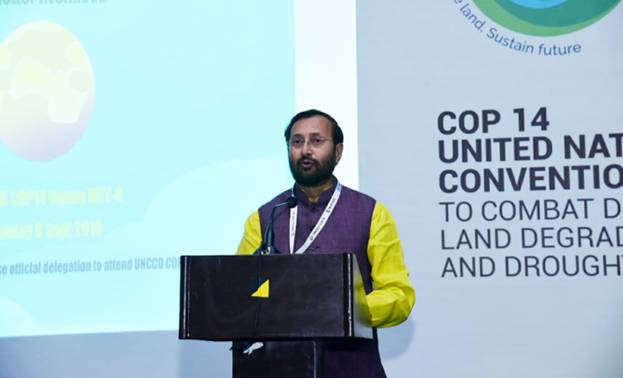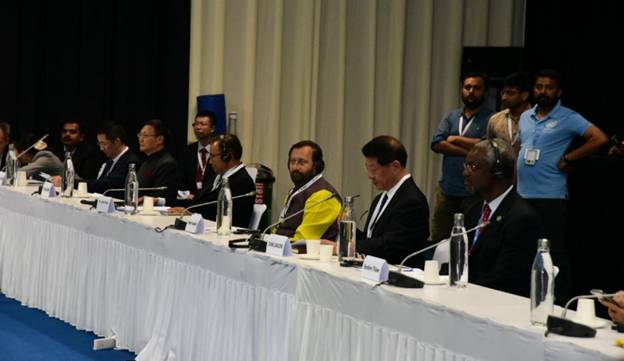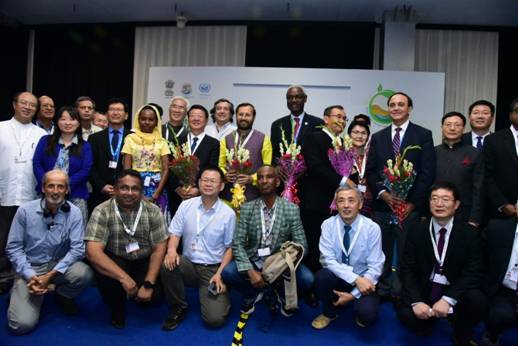Prelude to the inauguration of the High-level segment meeting of the 14th Conference of Parties (COP14) to United Nations Convention to Combat Desertification (UNCCD) tomorrow i.e. 9 September 2019 by the Prime Minister Shri Narendra Modi at India Expo Centre & Mart, Greater Noida; the Union Minister for Environment, Forest & Climate Change (MoEF&CC), Shri Prakash Javadekar today held a bilateral meeting with China.
With focus on strengthening south cooperation in addressing desertification and land degradation for better livelihood, the Environment Minister said “We want to tackle the problems scientifically and therefore we are using ultra-modern technologies with the cooperation of others because ultimately desertification has to be a people’s movement. India is also making positive progress in its actions of climate change”. Shri Javadekar also stated the various efforts made by the Government to improve efforts towards afforestation, by highlighting the recent distribution of CAMPA funds to various states.

During the meeting, both countries discussed in length and explored opportunities for bilateral cooperation in the area of combating desertification within the framework of UNCCD.


Mr. Ibrahim Thiaw, Executive Secretary UNCCD; Mr. L I Bijian, Minister of Chinese Embassy in India; Mr. Ohn Win Union Minister, Ministry of Natural Resources and Environmental Conservation of Myanmar and Mr. Zhang Jianlong National Forestry and Grassland Administration, China, were amongst other dignitaries present during the discussion.
India is the host country of UNCCD COP14 beginning from 2nd to 13th September 2019. The Environment Minister earlier stated on the Opening Day that good outcomes are expected of the UNCCD which will be notified in the Delhi Declaration.
About UNCCD:
The UNCCD is an international agreement on good land stewardship. It helps people, communities and countries to create wealth, grow economies and secure enough food and water and energy, by ensuring land users have an enabling environment for sustainable land management. Through partnerships, the Convention’s 197 Parties set up robust systems to manage drought promptly and effectively. Good land stewardship based on a sound policy and science helps integrate and accelerate the achievement of the Sustainable Development Goals, builds resilience to climate change and prevents biodiversity loss.
The Convention entered into force in December 1996. It is one of the three Rio Conventions along with United Nations Framework Convention on Climate Change (UNFCCC) and Convention on Biological Diversity (CBD). India became a signatory to UNCCD on 14th October 1994 and ratified it on 17th December 1996.
***
GK/LV